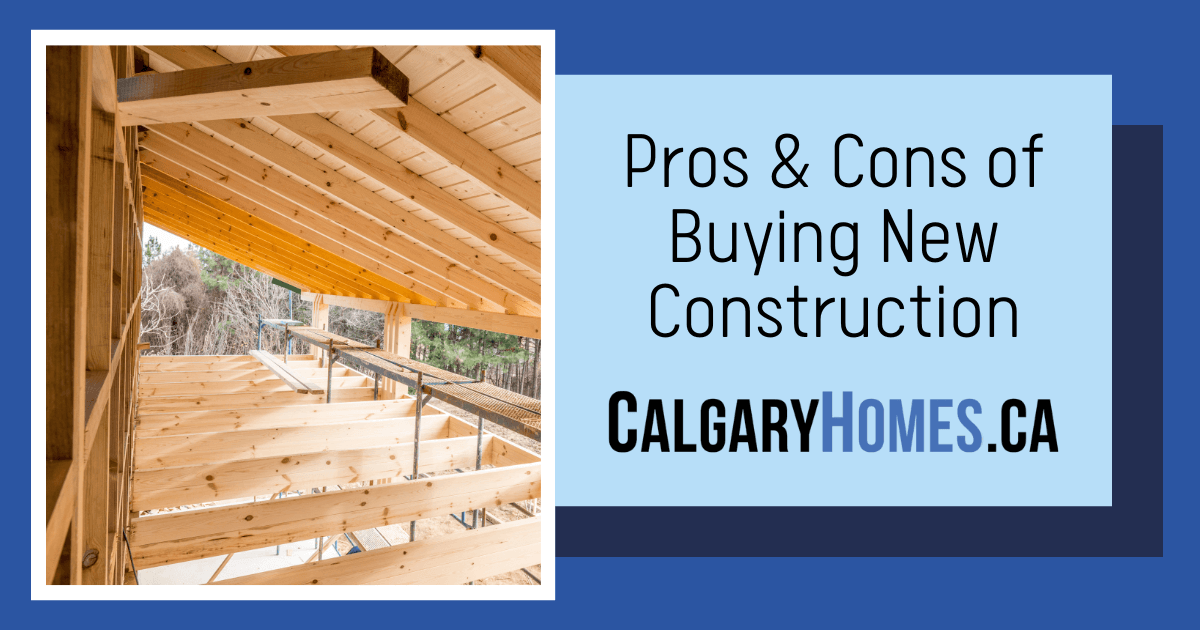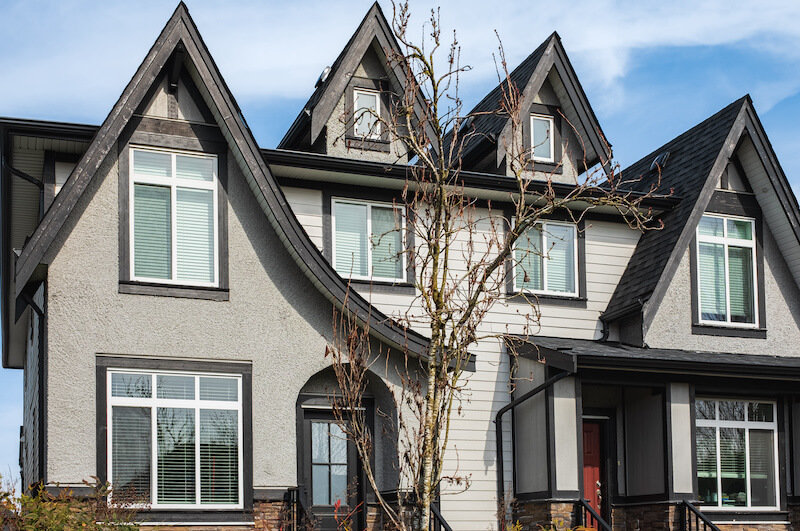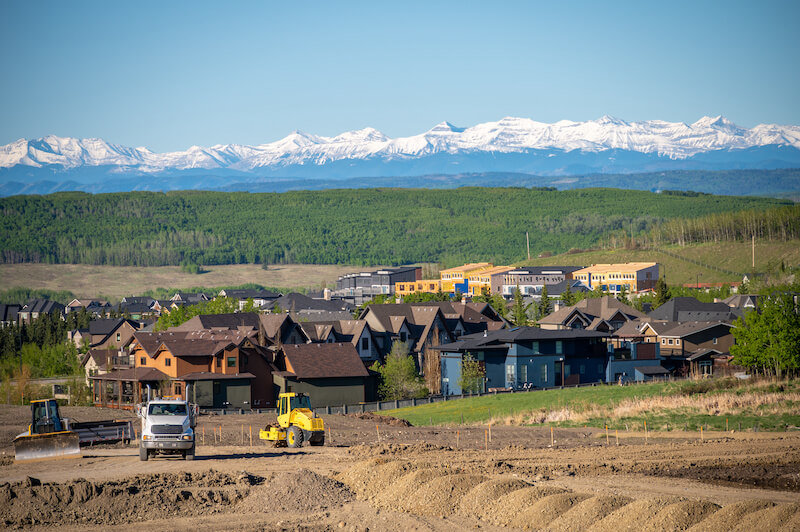New House vs. Old House: New Construction Pros & Cons
Posted by Justin Havre on Monday, July 1st, 2024 at 10:34am.

According to the Canadian Home Builder's Association (CHBA), approximately 25% of homes purchased annually are new construction. While homeowners may live comfortably in a new home or in a resale of an existing home, new construction has some hidden benefits for homeowners that may be easily overlooked.
For informational purposes only. Always consult with a licensed real estate professional before proceeding with any real estate transaction.
Is It Better to Buy New Construction or an Existing Home?
Deciding whether to buy a new construction vs. an existing home is a significant decision for many Canadians. Each option has its own set of advantages and disadvantages that can influence your choice based on your personal preferences, financial situation, and long-term goals. To help you make an informed decision, let's explore the pros and cons of both new construction homes and existing homes.
| Feature | New Construction Home | Existing Home |
|---|---|---|
| Price | Typically higher | Potentially lower |
| Customization | High | Low |
| Maintenance | Low | Potentially high |
| Energy Efficiency | High | Variable, generally lower |
| Location | Often suburban | Usually more central |
| Wait Time | Typically longer | Usually immediate |
| Landscaping | New and immature | Mature and established |
| Community | New and developing | Established |
| Warranties | Builder warranties available | Typically none |
| Charm and Character | Nearly always modern | Potential unique details |
Choosing a new build vs. an existing home depends on your priorities. If modern features and low maintenance are important, a new construction home might be the best fit. However, if you value character, immediate availability, and an established community, an existing home could be the better choice. Consider your lifestyle, budget, and long-term goals when making your decision.
The Benefits of Buying New Construction

Buying resale is not the only option. Many Canadian homeowners are thinking of going with new construction for their next home purchase, be it in the city or the country. Learn more about the hidden benefits of new construction.
Score Incentives on New Home Construction
Get money back for homes built to achieve improved energy efficiency. There are many energy efficiency incentive programs in Alberta, several of which are specifically aimed at new construction.
Homeowners and builders can choose small prescriptive measures, such as an all-off switch or an ENERGY STAR® Certified Central Air Conditioner (CAC), that work for their new construction and their budget. New Canadian programs may pay homeowners for specific new construction measures taken to reduce energy costs.
Built to Suit Your Life
Buyers of new construction can select custom upgrades and preferred layouts that support their lifestyle. Why waste time and energy tearing down walls and trying to force an open floor plan on a tight, conventional resale home? Get a move-in ready home that does not require renovations.
An experienced real estate agent can provide more details on the standard features and upgrades available in a new home, as well as their relative value. For prospective homeowners on a budget, remember to allow room in the budget for upgrades. New construction showroom models generally have upgrades throughout, and a homebuyer will want to know what is and what is not included in a standard new construction home.
Improved Energy Efficiency and Performance
Older resale homes may need to be retrofitted as previous electrical systems may be outdated and upgrades may be needed to maintain and repair the system. The same goes for improving the energy efficiency of a home. Homeowners can add upgrades to older homes after a resale purchase, but new construction can include many of the latest green energy systems and upgrades throughout a home from the outset.
The stringent building codes required for new construction today and new sustainable building materials can result in better-performing systems in a home and more, as new construction has to meet high standards for safety, performance, and energy efficiency. Homeowners who buy new construction can enjoy long-term satisfaction from efficient and high-performing systems and the latest technology.
Fewer Maintenance Issues
New construction is generally covered under warranty, and everything in it is new. New construction homeowners may live many years without worrying about making a significant repair, and if repairs are needed, they can use their warranty to reduce any out-of-pocket costs.
Many homeowners of resale properties do not have this option, and it can be expensive to repair roofing, heating systems or foundation issues in older homes. Professional home builders may offer an after-sales service program in addition to the warranties offered.
The Hidden Disadvantages of New Construction Homes
Many home buyers fall in love with the idea of a new construction home before they know what to realistically expect from this type of purchase. Knowing what is entailed in a new construction home is important. This enables a home buyer to develop realistic expectations, which can help the home buyer purchase the right kind of home for their needs.
Developments Tend To Be Construction Zones

Many new construction homes are not built individually but are built on development sites in large groups. These developments tend to spring up quickly, over the course of a few years.
During that time, the development is a construction zone, with many new homes springing up on a regular basis. Although the development process may be a worthwhile endeavor when all is said and done, some home buyers shy away from developments because they would prefer not to live in a construction zone.
That said, if you're planning to stay in your new home long-term, a few years of inconvenience—less if you buy toward the end of development—can be well worth the customizability, lower energy costs, and lighter maintenance.
Lot Size in New Construction is Usually Smaller
Often, new homes are built for economy, so their lot sizes tend to be smaller and more easily managed than those of older homes. Some new homeowners dream of living on a large lot with a lot of space. If this is important to them, they usually must purchase a pre-existing home with a large lot.
That said, some luxury home developments provide new construction homes on large lots. You can also buy land and have a custom home built on it.
Craftsman Details Are No Longer Present
It's well known that older homes tend to have craftsman-like details that can make them more attractive and valuable. These details are not often included in new construction homes. Some higher-end new-construction homes will have built-in features like window seats, a built-in hutch, and custom cabinets, but this is not especially common.
Craftsman details are often too expensive for many home buyers to include these features in their new construction homes. Home buyers who want craftsman details must usually either pay a lot of money or buy a pre-existing home with these details already included in the house.
There's a Limit to Home Customization
Many new home buyers imagine that they will be able to tailor every aspect of their new construction home to their needs and specifications. This is not often the case. Although a small amount of customization can be included in most new construction homes, as a general rule, many construction outfits will limit the amount of customization that a customer can request.
The customer may, for example, be given their choice of only four different countertop materials, and only three types of flooring. This limit of customization keeps the new construction home economical but also reduces some of the charm of buying a new construction home.
Of course, if you've purchased a vacant lot and are building from the ground up, the only limits are your budget and your home builder's experience.
Are New Construction Homes More Expensive?
If you're only looking at the upfront cost, yes, new construction homes for sale are more expensive than resale homes.
On the other hand, when you buy a resale home, how much money do you have to budget for repairs? How long will the roof last until it needs to be replaced? How long before an old HVAC system gives out? Are there costly outdated or even unsafe systems or materials hiding in the walls? How much more are you paying in insurance for an older home? Not to mention, how much money will you be losing on your utility bill from outdated systems and inefficient building practices?
Some home buyers feel the extra upfront cost is worth it because new homes lack the maintenance problems often found in pre-existing homes. In addition, new construction homes often have improved energy efficiency over pre-existing homes. Home buyers must do a cost-benefit analysis to decide whether or not a new construction home is right for them.
For informational purposes only. Always consult with a licensed real estate professional before proceeding with any real estate transaction.
So, Are New Construction Homes Worth It?
The decision to buy a new construction home or an existing home is deeply personal and depends on various factors. New construction homes offer modern amenities, customization options, and lower maintenance, making them appealing to those seeking the latest features and energy efficiency. On the other hand, existing homes provide the charm of established neighbourhoods and immediate availability.
Ultimately, your choice should align with your lifestyle, financial situation, and long-term goals. By weighing the pros and cons of buying new construction, you can make a well-informed decision that suits your needs and preferences, ensuring a satisfying home-buying experience in the Canadian real estate market.

